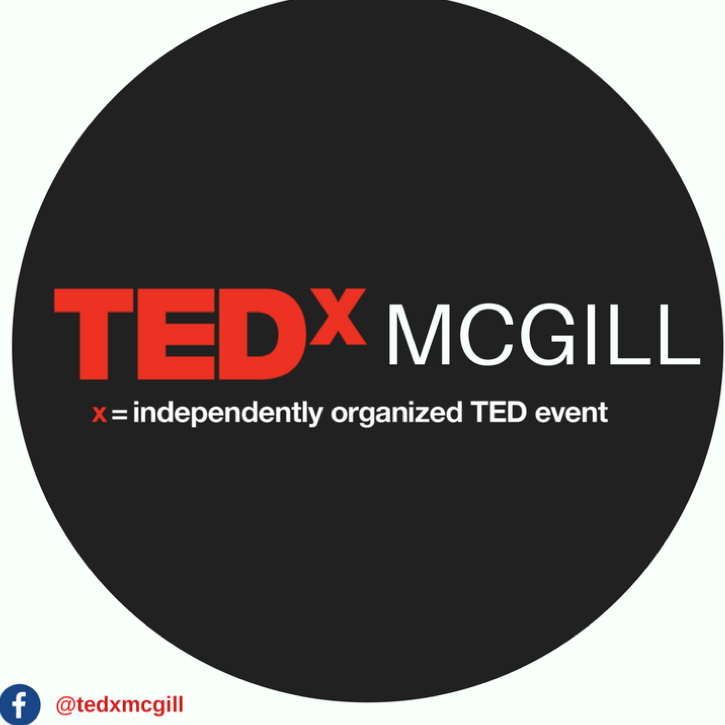TEDxMcGill’s annual conference was held on Nov. 16 and featured nine presentations from students, innovators, and business leaders notable for their actions that tested the limits of possibility.
Emma Lim
Emma Lim is a climate change activist and U0 Science student at McGill. As an organizer of Climate Strike Canada, Lim has been striking from school for climate justice since November 2018. Since then, she has become well known for her #NoFutureNoChildren Pledge, whereby she states that she will not have children until the government takes greater action to combat climate change. Lim talked about how Canada is currently not on track to meet acceptable greenhouse-gas emissions levels.
“Canada isn’t […] on track to meet our Paris Climate Agreement goals, which would be just a 30 per cent reduction [in] emissions below early–2000s levels. Instead, we declared a national climate emergency and, less than 24 hours later, announced the purchase of a $4.4 billion pipeline expansion project.”
Lim called on activists to go beyond making environmentally friendly changes in their own lives and pressure corporations that contribute to climate change.
“The most impactful and powerful thing you can do as a young person, or even an older person, living in our society is to point your finger. Point your finger at the people who are responsible for this crisis,” Lim said.
Tristan Surman
Tristan Surman is a U2 Arts student and filmmaker who has been planning events with the Toronto International Film Festival (TIFF) since the age of 15. After working as a multimedia editor for The McGill Tribune Surman moved on to a position in Johannesburg creating documentaries about local education.
Surman talked about how his organization, My Media Creative, works with artists to develop multimedia campaigns and provide learning experiences.
“There are so many tools that are way more accessible than ever, and if we actually want to empower young people to change discourses, to create innovations, […] we need to empower them with the tools that will actually get [their ideas] into people’s heads,” Surman said. “We need to expand the toolkit so [that] we can help people become more motivated students. [But] when we are empowering people with these communicative and creative skills, we need to adopt a different method of learning.”
Surman urged schools to break from the current mainstream method of teaching, incorporate more diverse ways of learning into their curricula, and provide more purpose-driven opportunities to students.
“How do we provide the conditions so [that] people can learn and do?” Surman said. “If we make sure people are empowered [with a tool set, provide] them a little bit of structure so [that] they can execute something, and link their learning to [a] purpose, [then we can make sure] that people can keep on doing great things and learn while doing them.”
Viveca Lee
Viveca Lee is a U2 Science student at McGill who is passionate about normalizing conversations about mental illness. Having recovered from anorexia nervosa as a teenager, Lee hopes to destigmatize the societal perception of eating disorders. In addition to her community outreach work, Lee holds a position as a research assistant at the Biopsychosocial Examination of Eating Patterns (BEEP) Lab.
Lee explained that despite eating disorders’ high mortality rates, these conditions remain insufficiently understood in our society.
“People with eating disorders are blamed for their condition,” Lee said. “They often get told things like, ‘Stop doing this to yourself.’ […] But eating disorders are not a choice. They are serious mental illnesses that affect at least one million people in Canada alone. […] When I had anorexia, it felt like my body was possessed by a demon that was constantly controlling my thoughts and actions.”
According to Lee, the behaviours that patients display are attributed to their disorder, and not their personality.
“I was in denial [that I had an eating disorder],” Lee said. “And denial is a common, characteristic symptom of anorexia nervosa. […] Although there isn’t a clear understanding of what exactly causes this lack of awareness, [research] suggests [that] starvation induces this defective information processing. […] These research findings […] validated my feelings of worthlessness and confusion for not being able to control my thoughts and actions.”
Aren Bezdjian
Aren Bezdjian is a PhD candidate in Experimental Surgery at McGill’s Faculty of Medicine. He is internationally recognized as one of the few to have published 30 peer-reviewed scientific articles before the age of 30.
The first section of his talk discussed the issue of incorrect interpretations of data from scientific studies. News outlets and social media platforms often take information out of context and draw false conclusions to receive public attention.
“Just because you find a correlation doesn’t mean [that] you can make a [false statement],” Bezdjian said. “A cursory reading of the abstract and title [of a scientific study] is not sufficient to make conclusions.”
In the second half of his talk, Bezdjian explained how sound travels through the human body via bone conduction and emerging applications of this knowledge, discussing his work developing innovative hearing implants for deaf children.
“Through these implants, [we have] allowed children to connect with the sound of their mother’s voice,” Bezdjian said. “This has [had] huge benefits in their development and quality of life.”
Bezdjian concluded by advising the audience to remain critical of the information they consume and to take advantage of the brain’s neuroplasticity to continuously learn and improve.
“Seek, and you will find answers to the ‘how’ and the ‘why’ [of the world],” Bezdjian said. “Passion is not innate. It is developed through life experiences [that] wire and rewire the brain.”








